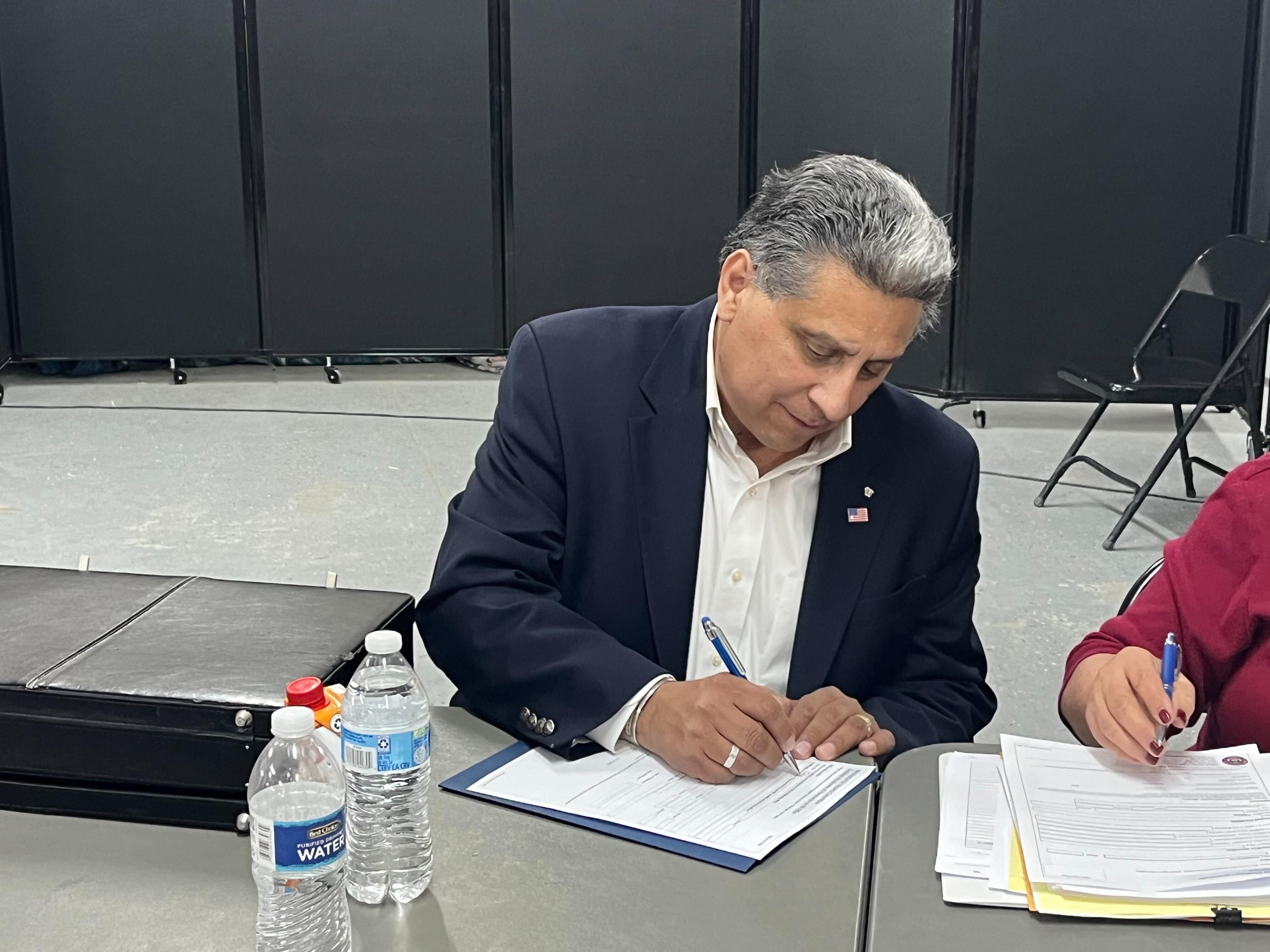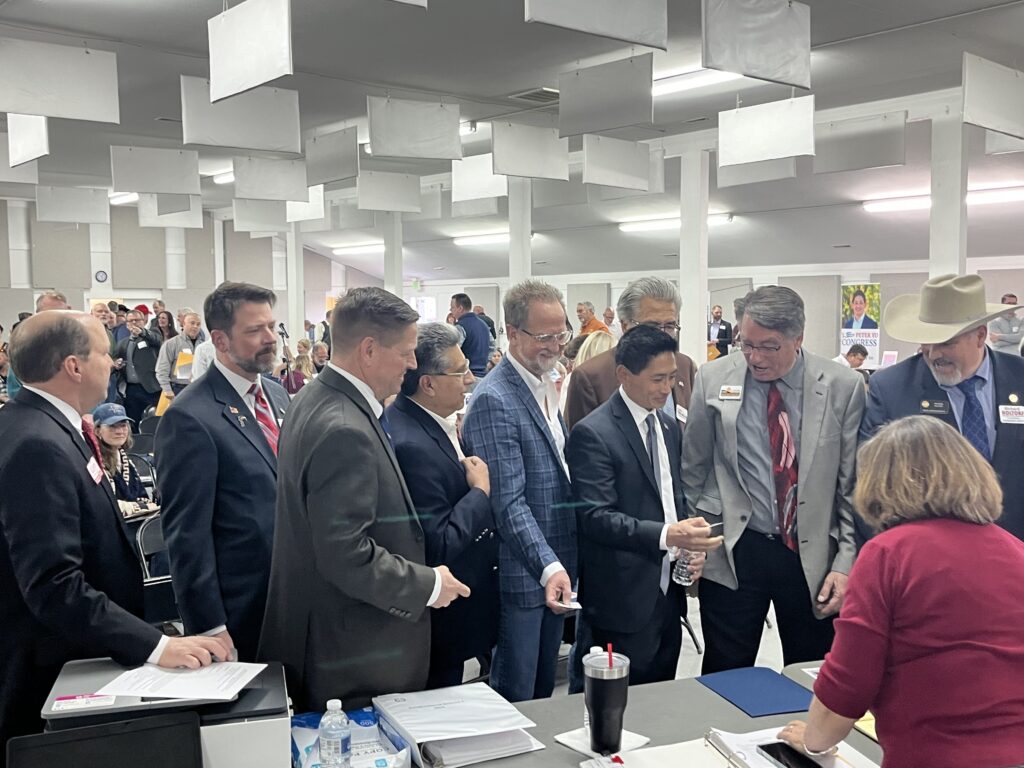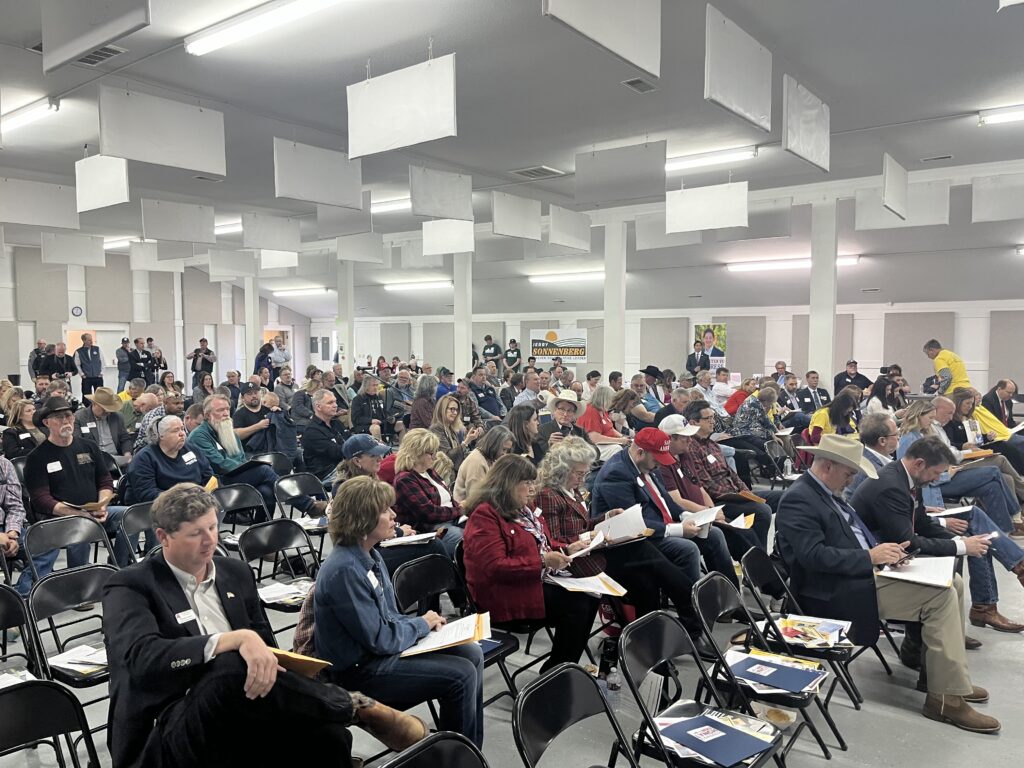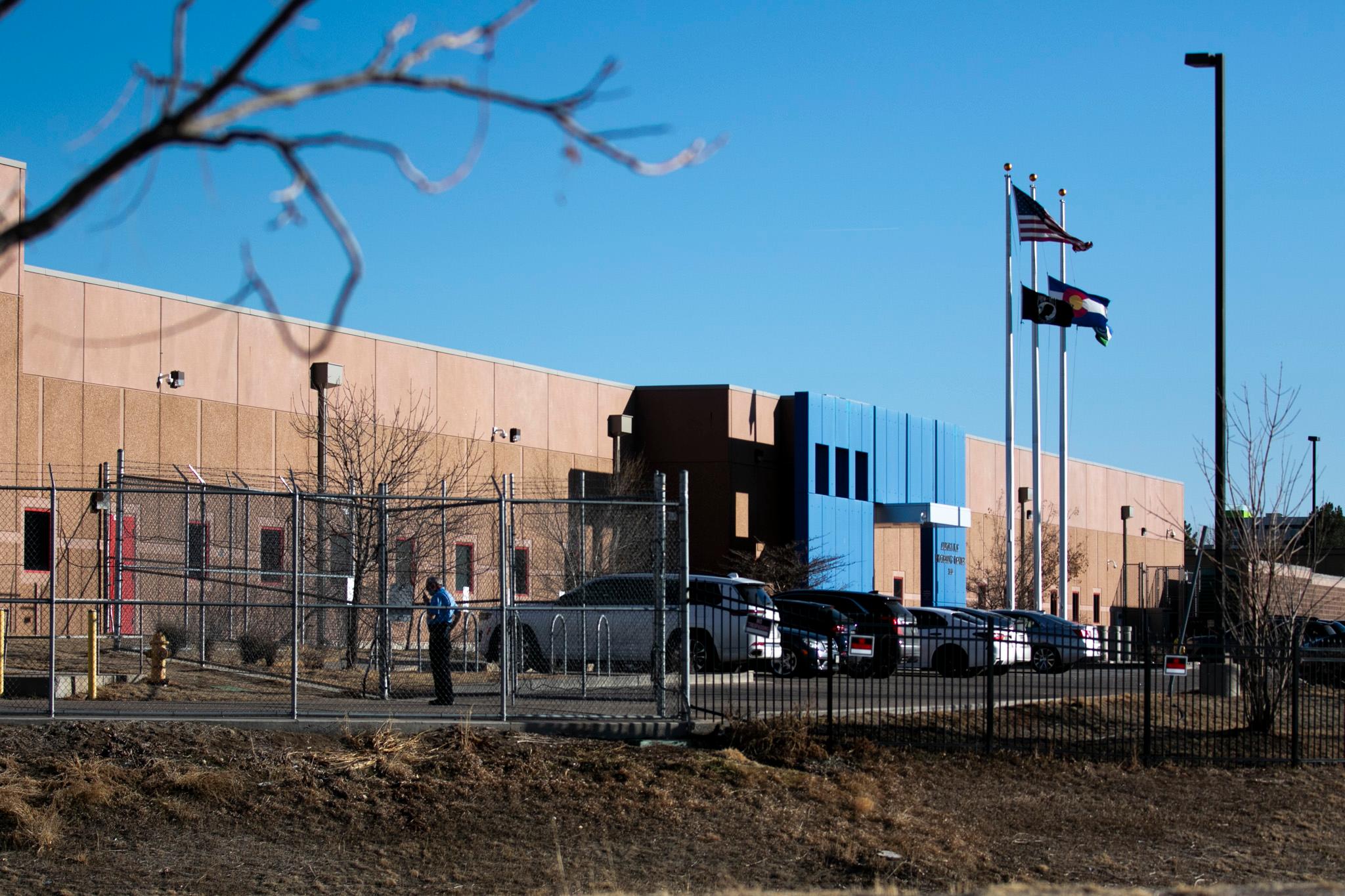
Updated at 12:15 a.m. on March 29, 2024.
Greg Lopez will be the Republican nominee in the June 25 special election to finish the rest of former GOP Rep. Ken Buck’s term in office through December.
Lopez clinched the nomination in the sixth round of voting, beating former State Sen. Jerry Sonnenberg, 51-46. Much of his pitch to vacancy committee voters was as a placeholder candidate—Lopez is not running in the GOP primary for November’s general election. And a majority of the assembly coalesced around the idea in order to not provide any of the primary candidates an edge in that race.
“I am not looking to run for office and I am looking to only fulfill the last six months of this term,” Lopez said in his nominating speech. “Tonight, it's not about giving an individual advantage over their competition.”
Still, the nomination of Lopez as a placeholder candidate is expected to boost the chances of Rep. Lauren Boebert in the primary on June 25. Boebert, who switched to run in the 4th from the 3rd Congressional District late last year, has the most name recognition in the crowded primary field. Boebert did not participate in the special election.
Given the strong Republican lean of the district, if a primary candidate seeking the nomination for November’s general election would have won the GOP nod for the special election, they would have gained a slight advantage heading into the primary. That prediction became moot with the nomination of Lopez, since he will not seek to serve another term past December.
Boebert wrote to the members of the vacancy committee saying as much and encouraging them to vote for a conservative not running in the primary. She noted that a candidate in both races would be able to “double their fundraising ability” through outside money and other avenues and “that would undoubtedly influence the regular primary election.” Boebert has the most campaign cash on hand, $1.28 million as of the last campaign filing, a million more than her nearest competitor.
Lopez, however, has faced allegations of impropriety in the past, most notably a 1993 domestic violence complaint, a 2003 DUI, and allegations that the former Colorado Director of the Small Business Administration during the Obama Administration misused his influence after leaving office.
After his selection, the former Mayor of Parker refused to answer questions about the misuse of influence allegations, saying "the record speaks for itself." However, his wife defended him regarding the domestic violence complaint, noting it happened 30 years ago.
“I’m done with it,” she said.
Lopez paid $15,000 to settle the civil case that after he left the SBA he attempted to improperly influence actions of the SBA in violation of federal law.
Boebert called the vacancy committee process a “swampy backroom deal”
Ahead of the final vote between Lopez and Sonnenberg, the third place finisher, former state Sen. Ted Harvey, asked his supporters to vote for Sonnenberg.
“(To) suggest that we send a placeholder to Washington DC to represent 800,000 people is irresponsible. It is irresponsible and it is dangerous,” Harvey said.
Harvey also suggested the GOP primary candidates not running in the special election were pushing for a placeholder nominee. Those two candidates, Boebert and Deborah Flora, have already qualified for the primary ballot in June.
Flora called the special vacancy process “fundamentally flawed,” noting the committee was not “proportionally representative of the district.” A Flora supporter also sent a letter to the vacancy committee advocating for a placeholder candidate.
Boebert was more blunt, calling it a “swampy backroom deal to try to rig an election.”
Sonneberg’s case for the nomination fell on deaf ears.
“Look, we deserve someone to represent us now,” Sonnenberg told the assembly. “Someone with the passion and the motivation to advocate for us. Not someone to just show up and vote. Not someone who can be placed over in a corner as a zombie or lame duck.”
“I'm not going to Washington to be popular with CNN or Colorado with the liberal media,” he added.

Lopez beat 8 other candidates through the 6 rounds of voting
Many of the candidates who put themselves up for consideration on Thursday are already running in the GOP primary race ahead of November’s general election. (The winner of that race will serve the next term, starting in January.) Those candidates included Sonnenberg, Harvey, state Rep. Richard Holtorf, state Rep. Mike Lynch, former U.S. Marine Floyd Truillo, former congressional staffer Chris Phelen, and businessman Peter Yu.
However the push to select a candidate who was not already running for the seat in November’s election – what some called a placeholder candidate – meant another option was needed. Lopez, who ran unsuccessfully for governor in 2022 and 2018, and Scott Melbye, a uranium businessman, were nominated from the floor in that capacity.
While Boebert and Flora already have spots on the June primary ballot, Sonnenberg, Holtorf, Lynch, Phelen, Floyd Truillo and Peter Yu have also submitted petitions to qualify for the primary. They are awaiting word from the Secretary of State’s office after submitting their required 1,500 valid signatures.
Harvey decided to qualify for the primary ballot via the GOP State Assembly next week, where he will need to garner at least 30 percent of the vote.
The vacancy committee voted via secret ballot. There were 111 committee members eligible to vote, but only 98 attended the meeting in Hugo, about a 20 minute drive southeast of Limon.
“It’s an unusual situation, but the process is working,” said Tom Weins, the chair of the 4th Congressional District, at the start of the meeting. “We will do our really important job.”
Democrats will meet on April 1 to select their nominee to run in the special election. The candidates are Ike McCorkle, John Padora, Karen Breslin and Trisha Calvarese. They are all also competing in the primary nomination to run for the seat in November.

- Rep. Ken Buck to leave office early
- Who’s running to replace Ken Buck in Colorado’s Fourth Congressional District?
- Boebert says she is switching congressional districts for the 2024 election. The move will put her in a safer Republican seat
- Colorado GOP Congressman Ken Buck not seeking re-election next year









